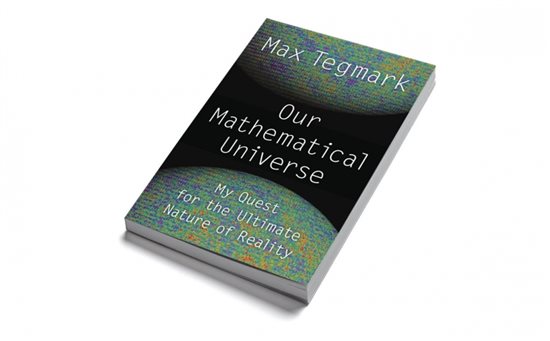 That was the question posed by Max Tegmark of the Massachusetts Institute of Technology at the American Astronomical Society meeting in Seattle on Wednesday.
That was the question posed by Max Tegmark of the Massachusetts Institute of Technology at the American Astronomical Society meeting in Seattle on Wednesday.
Tegmark is a renowned theoretical physicist and author of the recently published Our Mathematical Universe (Knopf, 2014). By studying inflation, which he believes can be proven, there could be a scientific route to testing theories of parallel universes, Tegmark says.
He proposes four levels of multiverses might be possible. The first model would have parallel universes with the same effective laws of physics, but possessing different initial conditions. Another would see the same fundamental laws of physics, but universes would have different effective laws, or bylaws. The third flavor of universes would bring nothing qualitatively new. And in the fourth model, the fundamental laws of physics would be totally different in alternate universes.
At one point during his talk on Wednesday, Tegmark held up a beach ball with a map of the cosmic microwave background (CMB) and called it "our universe."
"I'm not calling it the universe, which is a little bit arrogant because it assumes there are no others," Tegmark said, adding "I'm [also] not sitting here claiming any other universes exist." But he pointed out that the Andromeda Galaxy would exist just fine if humans didn't know about it.
Tegmark has studied the subject for decades and says that physicists' attitudes have changed over time, as new ways of potential proof emerge. Whereas his colleagues used to say that multiverses made no sense and they hated the idea, the criticism has a more narrow focus. "Now they just say they hate it," he said.
He sees a route to evidence of other universes in studying the earliest properties of our universe. Inflationary theory explains how our universe expanded rapidly in the first few fractions of an instant. It was first proposed by physicist Alan Guth, and it details how our universe continuously doubled in size for trillionths of a second before suddenly stopping.
Tegmark compared the process to an infant in his mother's womb.
"You doubled in size once per day and if you kept doing that for nine months, you would have a very unhappy mommy," he says. At 5 centimeters in size, you stopped. "It's the same with the universe."
In juxtaposition to the term Big Bang, he describes the process as more of a "cold, little swoosh."
And Tegmark says you just have to accept one thing about inflation: that there is a substance which wouldn't dilute during that expansion. Dark energy could provide such a substance.
Many astronomers believe that it's an untestable hypothesis, but that hasn't stopped considerable effort by a wide array of international projects to find evidence for inflation.
The favored route to confirming inflation is by spotting polarization in the CMB, which surrounds us with near uniformity as a relic of the Big Bang. Scientists use this radiation to precisely determine the age and shape of the universe, and some suspect that gravitational waves could interfere with this CMB and allow inflation to show itself.
The BICEP2 team observing the CMB from Antarctica thought they had found such polarization last year, setting off a flurry of Nobel Prize speculation. But data from the European Space Agency's Planck spacecraft dampened those hopes as the year went on, and instead suggested BICEP2 could be seeing cosmic dust, or at least a combination of inflation-caused polarization and cosmic dust.
A joint analysis from the Planck and BICEP2 teams looking at this inflationary evidence is to be discussed this afternoon here at the American Astronomical Society meeting in Seattle.
"This controversy is certainly a scientific one," Tegmarks says.